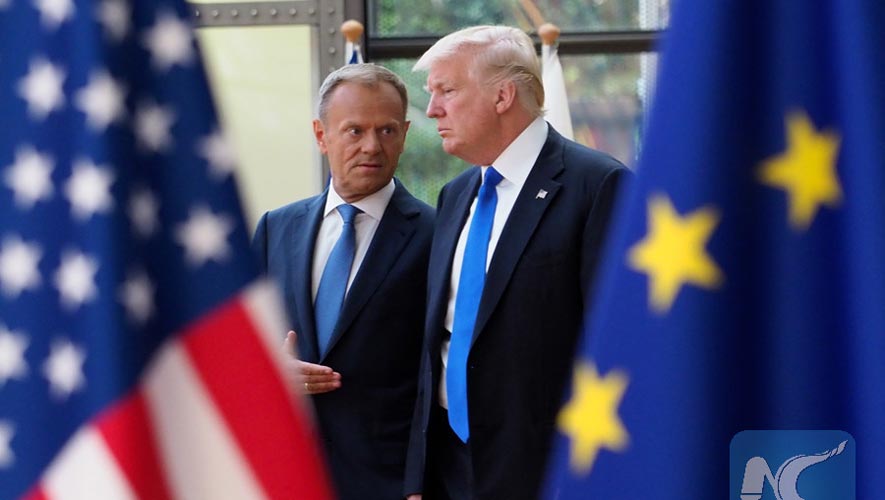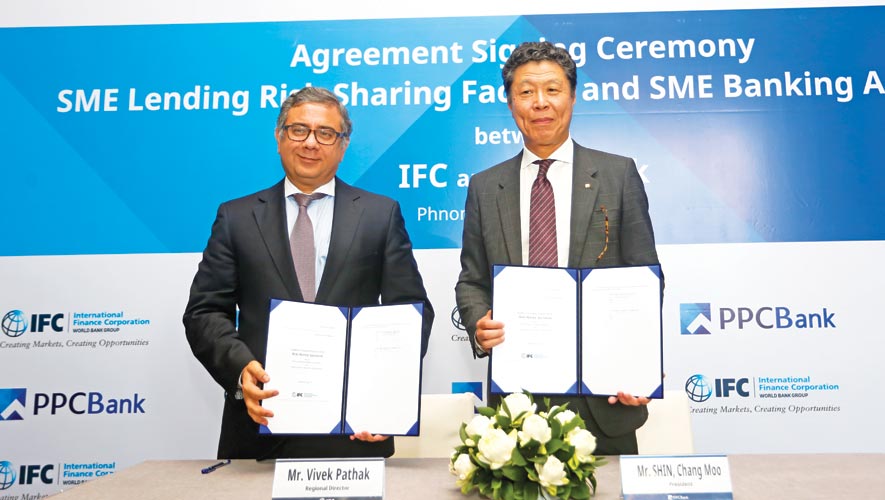The power play between US and China is beneficial for economies, especially with China’s recent trade deals in Europe but observers remain skeptical over the moves
For the latest Cambodian Business news, visit Khmer Times Business
The two biggest economic superpowers, US and China are in the middle of a trade war that does not affect these two trade giants per se, rather it affects the whole world economy.
Besides the enormous cultural differences between US and China, there are other aspects which might never be solved. But a way has to be found where a deal in which all parties “can live with” is made.
On one hand, there is Washington with President Donald Trump celebrating the end of the Robert Mueller investigation with his words “the Russia hoax is finally dead”, and the other, Beijing with President Xi Jinping who just finished his tour trying to convince European Union to support his Belt and Road Initiative (BRI).
During Xi’s first stop in Rome, Chinese and Italian leaders signed a Memorandum of Understanding signalling Italy’s participation in the BRI. It was also a turning point for EU as Italy became the first G7 nation and largest bloc member to accept BRI funds.
In total, China signed 29 deals valued at $2.8 billion. Most notably, they agreed to invest in port infrastructure in Trieste, Genoa and Palermo that would hasten the access of Chinese goods into Europe.
So, the question now is, what are EU and US leaders concerned about?
To quote history books: “Dīvide et Imperā” which is Latin for divide and rule, also known as a strategy first verbalised by Philip II of Macedon, father of Alexander the Great. It was later put to excellent use by Julius Caesar, Napoleon, the British in India, and now Xi, named by many as the Emperor of China. This is making European leaders very nervous, some who have expressed alarm about the agreement’s ability to divide Europe. US policymakers are also concerned as the Trump administration lobbied against Italy’s decision.
Nervous or not, the EU will most likely be the biggest winner, as predicted by a recent United Nations report because the bloc takes home some $70 billion in additional trade, thanks to the trade war. The report also states that Japan, Mexico and Canada stand to capture more than $20 billion in spillover trade from the ongoing tension.
In Southeast Asia, the trade tension is like rocket fuel as it lifts the economies in the region. American tariffs on Chinese goods have sped up the shift of contract manufacturing to Asean countries such as Vietnam, Thailand and Cambodia.
Although the rise in foreign direct investment into the 10-nation regional trading bloc has been apparent for a number of years, the trade war continues to drive more capital into the region, as reported by Forbes magazine in February.
Despite predictions that globalisation might collapse under a wave of economic nationalism, there is still some positivity when looking back at policy developments in 2018.
It was a landmark year for trade agreements with the signing of the Comprehensive and Progressive Agreement for Trans-Pacific Partnership, and African Continental Free Trade Agreement.
Last July, EU and Japan finalised the Economic Partnership Agreement and in October, US, Canada, and Mexico agreed on a new trilateral trade deal.
Meanwhile, China continues to advance its BRI aimed at strengthening linkages between Asia, Europe and Africa.
But if trade tensions spiral into currency wars in a fragile global economy, it would also threaten the ability of people and companies around the world to pay off dollar-denominated debts.
Protectionism and the slowing economic growth have already prompted downgrades to 2019 trade forecasts.
According to International Monetary Fund, World Bank and other institutions, economic slowdown is already showing in the US and China. Tighter restrictions on foreign corporate takeovers could further cut capital flows.
With these turn of events, 2019 continues to be an interesting year for the world economy and globalisation.
Benjamin is a business consultant based in China




